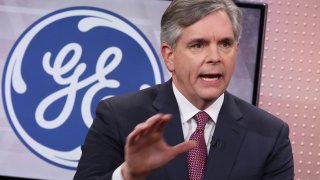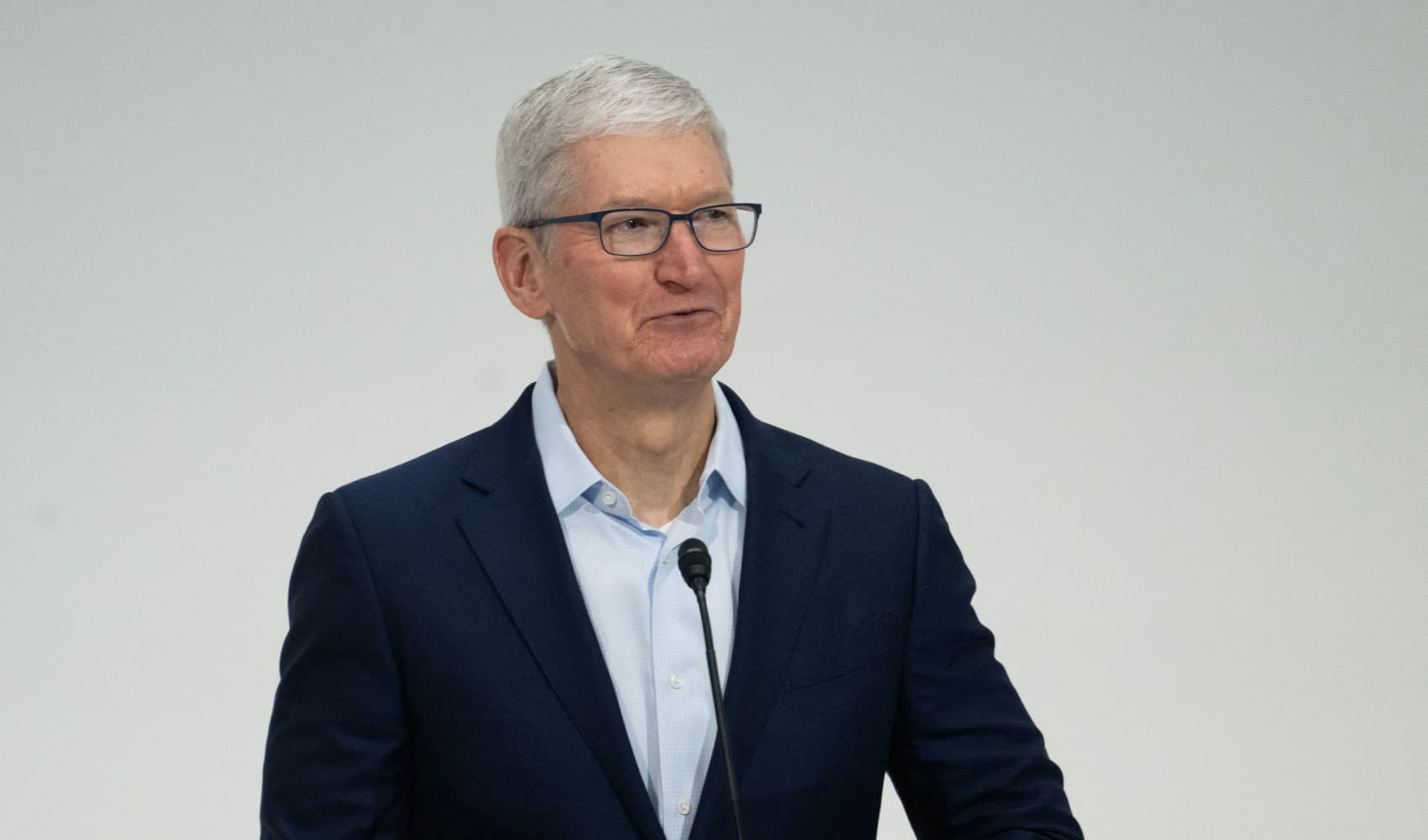
- GE announced Wednesday it will sell its jet leasing business to AerCap and use the proceeds to help pay off about $30 billion in debt.
- The Boston-based conglomerate said it will also wind down the debt-laden GE Capital and shift its assets onto the industrial balance sheet.
- The two steps are among CEO Larry Culp's most significant steps toward moving out of the finance business and focusing on the company's industrial roots.
General Electric's announcement Wednesday that it will sell its jet leasing business to rival AerCap and fold a substantially slimmed down GE Capital into its balance sheet is the latest indication that CEO Larry Culp is simplifying operations as it leans into its core industrial business.
GE Capital Aviation Services, or Gecas, is the largest asset of the company's finance arm, GE Capital, which nearly sunk the company during the financial crisis when it took on huge losses. The company has been whittling down Capital since then and Culp has sought to accelerate GE's exit from finance.
With the sale of Gecas, the company said it will fold GE Capital into the corporate parent instead of reporting it as a standalone captive business. GE is using the money, about $24 billion in cash from the sale, to help pay down debts that have overshadowed the conglomerate's industrial businesses since the 2008 crisis.
Get a weekly recap of the latest San Francisco Bay Area housing news. Sign up for NBC Bay Area’s Housing Deconstructed newsletter.
'Focused, simpler and stronger'
Culp, who was brought in as CEO in 2018 to help turn the company around after years of tumult, has been vocal about this desire to move away from Capital. Wednesday's announcements are among his most meaningful strides toward realigning the company with its industrial roots. But billions in debt from Capital's remaining businesses still linger over the company.
GE's stock tumbled by more than 6% in early trading Wednesday after almost touching $14.50 per share in premarket trading. Shares are up nearly 30% since Jan. 1.
Money Report
"This really marks the transformation into a more focused, simpler and stronger GE," Culp said in an interview with CNBC's David Faber. "We're going to be able to focus our core four industrial businesses aimed at the energy transition, precision health care and the future of flight, and there's no question we're going to be a stronger company going forward financially and operationally."
The deal is "incredibly important" in turning GE into "a focused industrial play," Culp said at GE's investor day presentation Wednesday following the deal's announcement.
Bank of America's Andrew Obin echoed Culp's view. He said investors "have remained wary of GE Capital and financial assets/leverage outside the core industrial business, in our view," he said in a note to clients on Monday, after the Gecas deal was reported by the Wall Street Journal.
"A smaller GE Capital would simplify GE's story," he added. Obin also raised his price target on GE from $14 to $15 per share.
GE will get about $24 billion in cash and 46% ownership in the merged company, allowing GE to reduce its debt by about $30 billion after the Gecas transaction closes in a year or so using proceeds from the deal and existing cash. Culp said the company will have reduced debt by $70 billion since the end of 2018 once the Gecas deal closes.
Debt
However, S&P Global Ratings said it might lower the company's credit rating after the transaction closes, depending on how much debt the company still has after the deal. While Gecas was the largest asset in GE Capital, the unit will retain a smaller leasing operation that helps finance purchases of GE power turbines and wind turbines as well as a legacy insurance business that has plagued the company with losses over the years.
After the deal closes, GE Capital will still account for $21 billion in assets, not including Capital's large and risky insurance portfolio, CFO Carolina Dybeck Happe said at the company's investor day Wednesday morning.
S&P said it estimates that GE's leverage will increase to about 6 times its assets after it consolidates GE Capital's remaining debt on to its balance sheet, "even with GE using the cash at closing to reduce debt."
S&P noted that it has previously treated Gecas as a separate captive financing unit that supports GE Industrial's overall operations. S&P said it plans to assess GE's overall financial condition on a consolidated basis going forward.
"The sale of GECAS is a large step in GE's exit from financial services, and it will generate significant cash to reduce debt and liabilities at GE and GE Capital," S&P said. "This transaction also simplifies GE's operational, accounting, and reporting structure."
2021 Outlook
Culp said he's optimistic the company can continue to reduce debt through expected strides in the industrial businesses in 2021. The Gecas deal gives GE a 46% stake in the combined company that's valued at about $6 billion as of Tuesday, according to the company. Culp said he expects those shares to appreciate in value and at least some of the stake will be gradually sold off after the lock-up period ends, providing more cash to reduce debt.
The company also announced that it's board is proposing a 1-for-8 reverse stock split, which "would decrease the number of shares outstanding to a number more typical of companies with comparable market capitalization." GE said it's proposing the move "in light of its significant transformation over the past several years."
GE also reaffirmed its 2021 guidance, projecting $2.5 to $4.5 billion in free cash flow for the year. The company also predicted 2021 adjusted earnings of 15 cents per share to 25 cents per share.
The expected positive cash flow includes an assumption that the company's aviation unit, which manufactures jet engines and is historically the company's most profitable business, will recover in 2021 as demand for global travel resumes during the pandemic. Culp said there are no certainties around the expected recovery, but he's confident the company can hit its guidance.
Morgan Stanley's Josh Pokrzywinski noted recently that there's plenty of room for cash flow recovery in aviation. Last week, he raised his price target on the stock to $17, a high among Wall Street banks. He said Monday in a note to clients that the Gecas deal could free up capital for GE to become more aggressive in its industrial businesses.
He said it moves GE one step closer to becoming "a cleanly valued industrial company."






